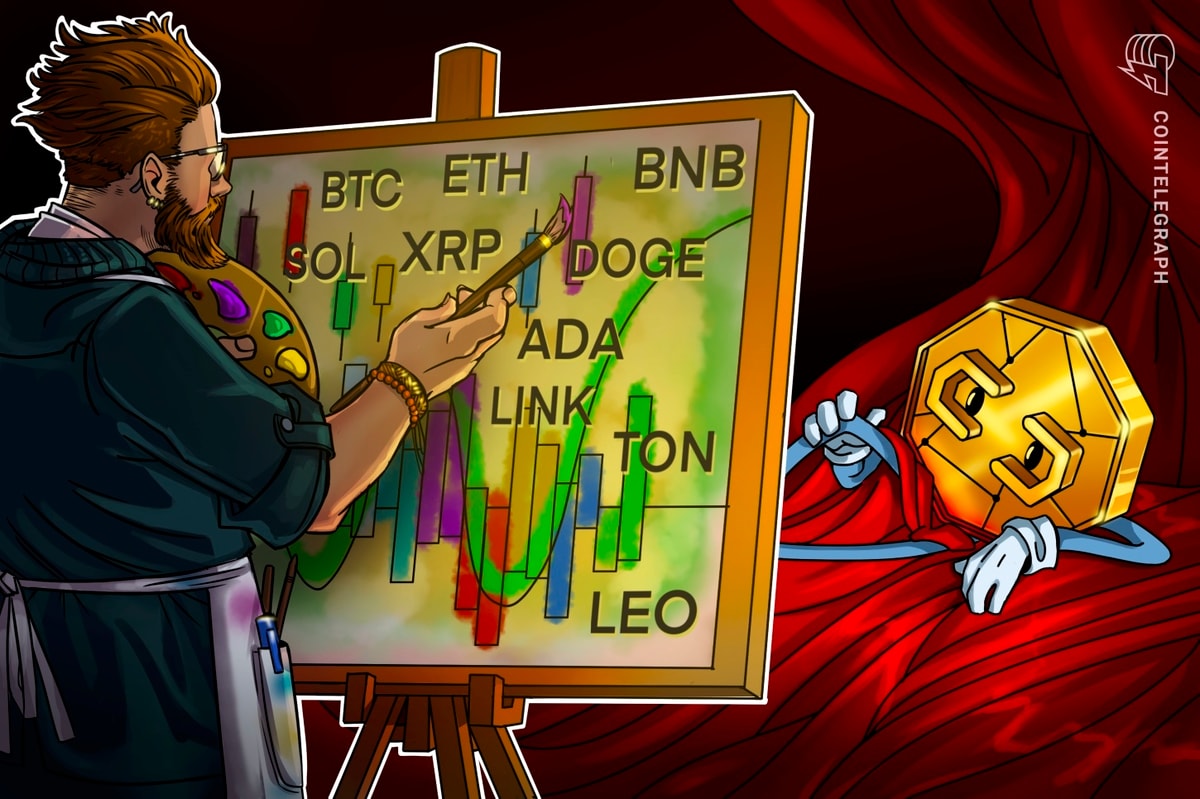The crypto industry has proven skeptics wrong on many fronts, but myths still persist that may be keeping newcomers out. As a digital industry, crypto may intimidate those who aren’t already tech-savvy. Others may misunderstand how blockchain and crypto technologies function and struggle with trust, or worry that issues like regulation and environmental impact aren’t being seriously considered by industry insiders.
There are several myths that are likely holding the industry back, and it’s up to crypto insiders and leaders to address them head-on. Here, 11 members of Cointelegraph Innovation Circle discuss the misinformation about the crypto industry that’s in widespread circulation and the truth that needs to be shared.
Consumers will never understand it
It’s a myth that the consumer is not intelligent or thoughtful. They have limited bandwidth like anyone else. Ultimately, they put their chips in where they get the most value for the least effort. This has meant the growth of Web2-based models over the past 20 years, but soon, many people will see that with slightly greater effort and responsibility in Web3, there are tremendously better rewards. – Dylan Dewdney, NFT3
Cryptocurrencies primarily fund illicit activities
Some believe the primary use case of cryptocurrencies is for illicit activities. It has been difficult to refute this fear, uncertainty and doubt, as illicit activities have grown in tandem with the overall market growth. However, what is fascinating is that the growth rate of legitimate activity has far outpaced that of illicit activity — a clear sign of a maturing market with organic user growth irrespective of illegal activity. – Dylan Gold, BlockArrow Capital
DAOs are less efficient than centralized companies
Lately, I’m noticing a lot of people assume that decentralized autonomous organizations are inherently less efficient than centralized companies. I smile to myself when I see these jabs. There is nothing preventing DAOs from operating just as efficiently as companies. ShapeShift DAO spent seven years as a centralized company, but we’re without question more efficient as a DAO. We’re spending less, earning more and shipping faster. – Willy Ogorzaly, FOX Foundation
Digital assets aren’t environmentally friendly
Concerns around sustainability and ESG reporting for digital assets are holding back institutional participation in this new and exciting sector. By designing appropriate sustainability standards and building DAOs to coordinate industry and regulator participation, we hope to unlock significant participation. – Max Song, Sustainable Bitcoin Standard
Cryptocurrency is totally unregulated
One of the biggest myths is the stereotype that the cryptocurrency space is an unregulated Wild West full of problematic actors. In reality, recent steps taken by regulators across the globe are an indicator of what’s to come. We’re seeing national governments become more active in the drafting of crypto legislation, shaping requirements for tax reporting, prevention of money laundering and so on. – Oleksandr Lutskevych, CEX.IO
The technology only has financial applications
Many people think that blockchain and cryptocurrency technologies are solely financial in nature. There are so many valuable capabilities that have little or nothing to do with financial considerations, let alone speculation and “number-go-up” considerations. This often gets in the way when speaking to people outside of our industry who would otherwise value and use the very real capabilities of the technology. – Joe Roets, Dragonchain
The industry can’t advance without more regulation
It’s a myth that we need regulation to thrive. We are clearly doing fine without it. Sure, there are issues, but we are organizing ourselves accordingly. I think regulation can come in, but it has to be done in the right way so that the industry isn’t constrained. – Rupert Barksfield, Amulet
Older generations can’t benefit from it
The biggest myth is that crypto is meant only for millennials and Gen Z. With just 4% of boomers holding crypto, this perception is harming both our older generations and the industry itself. For one thing, cryptocurrency would help boomers build wealth and retire early, and for another, there’s massive potential for the next bull run and VC investments to be driven by our more wealthy older generations. – Dev Sharma, Blockwiz Solutions Limited
Bitcoin is the only non-security crypto project
A common myth is a belief that Bitcoin is fully decentralized and is the only non-security crypto project in the industry. This is dangerous. The only difference from an operating perspective is we don’t know the creators of Bitcoin. This myth keeps many great ideas on the sidelines because people are scared to implement them for fear of government regulation. If that’s the bar governments set, a lot of projects will go anonymous. – John Wingate, BankSocial
Blockchain is anonymous and therefore can’t be trusted
By far, the most destructive myth is that crypto is anonymous and therefore used by criminals. Non-coiners who don’t know or understand how a blockchain works do not know that the exact opposite is the truth: Everything is logged and 100% transparent, and therefore safe and legit. Blockchain should be used by everyone to keep their funds safe and secure and maintain full ownership of their financial assets. – Tomer Warschauer Nuni, Kryptomon
You have to be tech-savvy to be in crypto
The biggest myth is that you have to be tech-savvy to enter the industry. So many people stay away from crypto because they’re under the impression it’s impossible to understand, and they miss out on opportunities. For example, a lot of artists would benefit from tokenizing their work, from tracking ownership to collecting royalties, but they don’t because they’re intimidated by the technical side. – Amanda Whitcroft, Panda PR and marketing
This article was published through Cointelegraph Innovation Circle, a vetted organization of senior executives and experts in the blockchain technology industry who are building the future through the power of connections, collaboration and thought leadership. Opinions expressed do not necessarily reflect those of Cointelegraph.
Learn more about Cointelegraph Innovation Circle and see if you qualify to join.











